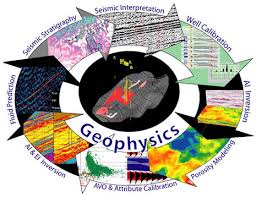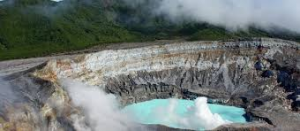
This course provides a comprehensive introduction to stratigraphy, the branch of geology that studies rock layers (strata) and layering (stratification). Students will explore the principles and methods used to analyze sedimentary deposits, including the formation, distribution, and age of strata. The course emphasizes the significance of stratigraphy in understanding Earth's history, paleoenvironments, and the processes that shape the planet.
- Teacher: Admin User

Geodynamics is the study of the Earth's dynamic processes and the forces that shape our planet's structure and evolution. This course explores the fundamental principles of geodynamics, focusing on the mechanics of the Earth's lithosphere, asthenosphere, and deeper mantle. Students will gain an understanding of tectonic processes, mantle convection, and the interaction between geological and geophysical phenomena.
Learning Objectives:
- Understand the fundamental concepts of geodynamics, including stress, strain, and material properties of the Earth's layers.
- Analyze tectonic plate movements and the mechanisms driving these processes.
- Explore mantle convection and its role in the thermal evolution of the Earth.
- Investigate the relationship between geodynamic processes and geological features such as earthquakes, volcanoes, and mountain building.
- Apply numerical modeling techniques to simulate geodynamic processes.
- Teacher: Admin User

Course Description:
This course explores the physical properties of the Earth and the methods used to study them. It combines principles from physics, geology, and mathematics to understand geological structures and processes.
Key Topics:
-
Introduction to Geophysics
- Definition and scope of geophysics
- Historical development and applications
-
Seismic Methods
- Principles of seismic wave propagation
- Reflection and refraction seismology
- Data acquisition and interpretation
-
Gravity and Magnetic Methods
- Earth's gravitational field
- Magnetic properties of rocks
- Applications in mineral exploration
-
Electromagnetic Methods
- Principles of electromagnetic induction
- Techniques for subsurface mapping
- Applications in environmental and engineering geology
-
Geothermal Energy
- Heat flow and geothermal gradients
- Exploration techniques and resource assessment
-
Geodesy
- Measurement of Earth's shape and gravitational field
- GPS and its applications in geophysics
-
Geophysical Data Analysis
- Statistical methods in geophysics
- Inversion techniques and modeling approaches
-
Case Studies and Applications
- Exploration for oil, gas, and minerals
- Natural hazard assessment (earthquakes, landslides)
- Teacher: Admin User

Geology, the study of the Earth and its processes, is an essential discipline that provides invaluable insights into our planet's history, structure, and dynamics. As a course, geology equips students with the knowledge to understand the complex interactions between geological, chemical, and biological systems. This foundational understanding is crucial for addressing pressing global challenges such as climate change, natural resource management, and environmental sustainability.
Through the exploration of topics like mineralogy, petrology, and tectonics, students develop critical thinking and analytical skills that are applicable across various fields. Geology fosters a sense of curiosity about the Earth, encouraging students to engage with their environment and recognize the importance of natural processes in shaping our world. By studying geological phenomena, students gain a deeper appreciation for the Earth's resources and the need for responsible stewardship.
Moreover, geology plays a vital role in informing policy and decision-making related to land use, disaster preparedness, and environmental conservation. As future geoscientists, students are empowered to contribute to solutions for environmental challenges, ensuring a sustainable future for generations to come. By choosing geology as a course, students embark on a path that not only enriches their understanding of the Earth but also equips them to make a positive impact on society and the environment.
- Teacher: Admin User
